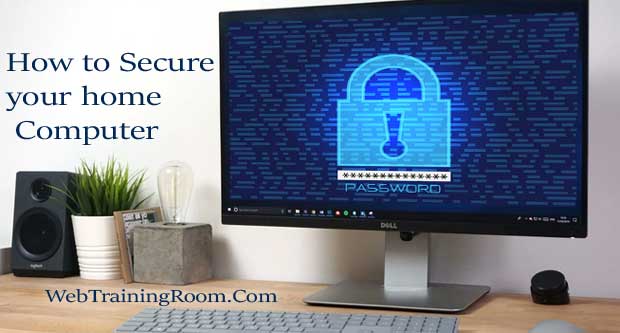Work does not need to be done in a specific place to be executed successfully. Based on this concept, remote work is a workforce arrangement that allows employees to work outside the conventional office environment. Remote work allows employees to execute their projects wherever they please; there’s no need to commute to the office every day and work from a designated work station. Remote work has been on the rise in the past few years and is now becoming mainstream and some cyber security tips can help.

Currently, a lot of professionals are turning to remote work in an effort to combat the spread of Covid-19. But there are compelling benefits of remote work, even without a pandemic to worry about. Research shows that working remotely enhances employee productivity and improves work-life balance. However, experts warn about the potential data and cybersecurity risks of giving employees remote access to an organization’s IT infrastructure.
The ability to work remotely is appealing to many professionals. However, there are numerous cyber security risks that make it difficult to work remotely. But that does not mean that people can’t work remotely, especially at a time like this when the world is dealing with the Covid-19 crisis. Here are five security tips for safe remote work.
One of the biggest cyber security concerns vis-à-vis remote work stems from unsecured networks. Using a VPN is the only way to stay safe when connected to public Wi-Fi networks when working remotely. What is a VPN? A VPN tunnels your internet traffic through a private network ensuring more security. As a remote worker, all you have to do is download a reliable VPN and execute your projects safely from home.
As a distributed workforce, it’s important for organizations that have embraced remote work to implement email encryption. Email is a major gateway for potential threats. Therefore, strong encryption, coupled with a strict email policy that outlines what constitutes a suspicious email and how to handle suspicious emails, is necessary.
Hackers use malware to look for vulnerabilities in a system and use them to gain control of the devices in the network. Having up to date antivirus protection at all times ensures security. Employers should ensure that devices connected to their network are fully protected with firewalls, encryption, and up to date antivirus.
A lot of people still use weak passwords for their online accounts, including work accounts, despite being aware of the risks. Hackers can easily crack weak passwords with brute force and make away with sensitive company data. Multi-factor authentication adds a layer of security to employee accounts when working remotely.
When working remotely, employees will experience cyber security breaches now and then even with every possible protection in place. As a remote worker, the best way to minimize the impact of a data breach is to report the issue to in-house IT staff immediately. Monitor the performance of your device, pop-up ads, and error messages and report discrepancies as soon as you notice them.
Remote work has a myriad of benefits for both the employer and the employee. Working remotely improves the productivity of the workers and helps them maintain a healthy work-life balance . But working from home also comes with certain cyber security risks. Following these tips will help you mitigate these risks and create a secure remote work environment.
This guest post was written by Jeff Anderson of TechWarn, a website featuring the latest tech news from around the world. [published on 13-july-2020]

Learn web development, Free Tutorials, Learn Skills!

Let's help your kids start coding, a baby step can make big difference in their future.
